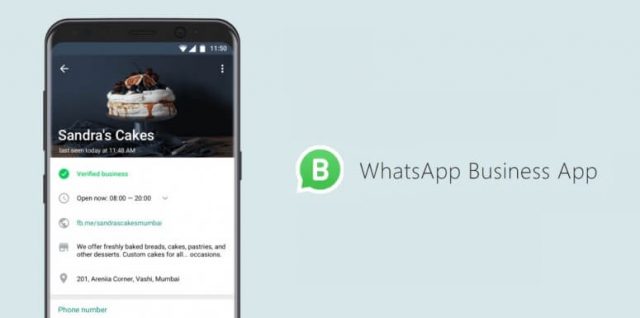With around 1.3 billion users, WhatsApp is the largest messaging platform in the world. In fact, given that it also supports voice and video calls, it should be rightly called the largest communication app. But here is the interesting part- while the platform was acquired by Facebook for a staggering $19 billion and the company has spent millions of dollars in server costs so far, it doesn’t make any money.
The revenue opportunities of the app have been long explored and the company had been testing its feasibility to be used as a business platform in different markets. And now with the launch of its business version in select markets, it seems ready.
The concept
Small and large businesses create their account on the business version of WhatsApp and provide all the details including contact information, email, website, working hours, among other things. The company then verifies the information (mainly contact info) and assigns a green tick to indicate that the company has been authenticated (much like the blue tick in Twitter for verified accounts). Later, the platform works like a marketplace where 1.3 billion users can contact businesses for all kinds of services. From booking a doctor’s appointment to checking if an item is available at your nearest mom-and-pop store, possibilities are virtually limitless.
The company also aims to tap those large enterprises like airlines, banks, ecommerce that generally deploy massive amounts of resources to reach out to customers. By providing sophisticated tools on its already well-established platform, the airlines can just send a WhatsApp message to the travelers for their boarding pass and customers can track their purchases from the app.
Of course, WhatsApp will charge those enterprises for the tools and services, but it would still be much cheaper than developing and maintaining the infrastructure by themselves.
Apart from its feasibility for businesses, one of the most appealing factors for its potential success is that it requires no action from the customers. The new app is solely for the business and common users who can continue to use the services as usual. Additionally, they would be able to block or report businesses to better tailor their experience.
For now, however, the company has released the application (for Android Platform) only for small businesses in select markets including Indonesia, Italy, Mexico, the U.K. and the U.S., and is expected to append those enterprise tools in the future. The company hasn’t released any news about the date when an iOS version will be launched, or the service will be available in other markets, we’re just speculating it to be 2018.
Android Users can download from Google Play Store.





















Comments are closed.